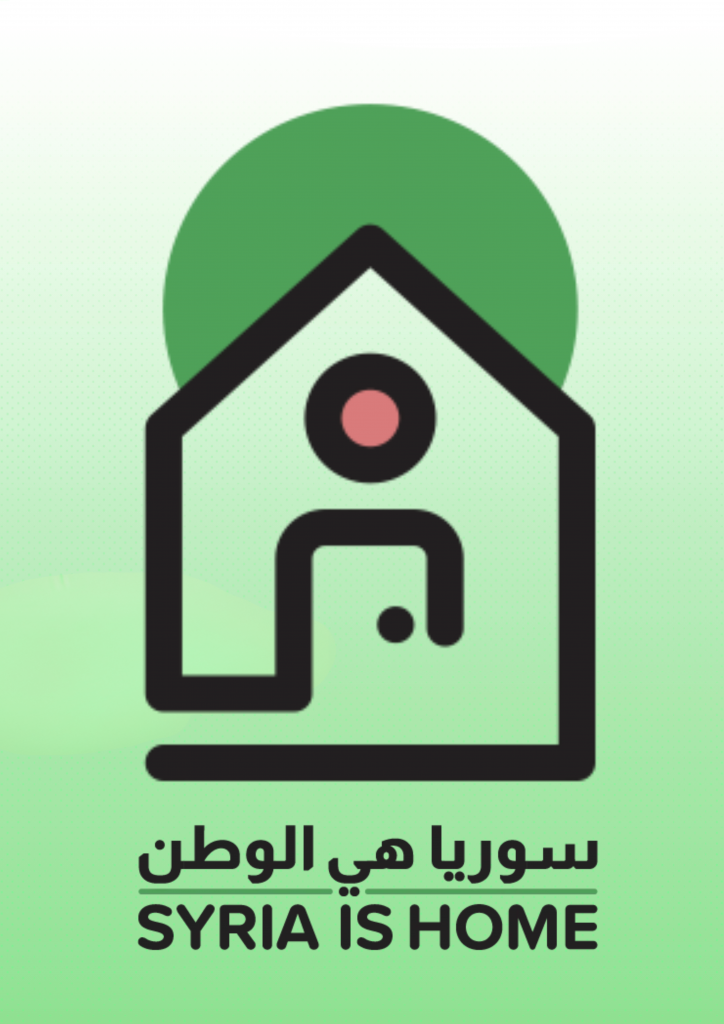When Considering Return Syria is Home UNHCR’s Position on Returns to Syria Legal Status in Czechia Return & Protection Documents Help in Syria Family Tracing Additional Help
Returning home is a personal decision that should be fully informed, voluntary and take place in conditions of safety and dignity. It is a choice only you and your family can make. UNHCR continues to call on host countries to permit short-term visits by Syrian refugees to their place of origin without impact on their legal status, and to refrain from forcible returns to Syria.
To support informed decision-making about continued stay in host countries or return to Syria, UNHCR has created Syria is Home, where you can find information on legal steps, documents, housing, healthcare, and education.
![]() For more information, you can contact the UNHCR office in Czechia.
For more information, you can contact the UNHCR office in Czechia.
When considering voluntary return to Syria
The decision to return to Syria is a deeply personal one, and it should always be fully informed, voluntary and take place in conditions of safety and dignity. While the recent developments in Syria present an opportunity for Syria to move forward and for Syrian refugees and internally displaced people to think about returning home, it is too early for UNHCR to advise about the situation in areas of intended returns, as it is expected to continue to change.
UNHCR and partners are monitoring the situation inside Syria closely. At the current time, we cannot provide confirmed or accurate information about the current security situation inside Syria.
It is not up to UNHCR or anyone else to make the decision to return on behalf of refugees. Refugees are best placed to make that decision based on their individual circumstances, family situation, and conditions in their home country. UNHCR continues to call on host countries to permit short-term visits by Syrian refugees to their place of origin without impact on their legal status, and to refrain from forcible returns to Syria.
UNHCR’s Official Position on Returns to the Syrian Arab Republic
موقف المفوضية السامية للأمم المتحدة لشؤون اللاجئين بشأن العودة إلى الجمهورية العربية السورية
UNHCR believes it is important for refugees to be able to assess conditions firsthand in their area of intended return, such as through short ‘go-and-see’ visits.
 What is the situation inside Syria?
What is the situation inside Syria?
UNHCR remains on the ground in Syria and is committed to staying and delivering.
The volatile security situation in the past weeks has forced the suspension of some of UNHCR’s services, but in areas where security has stabilised, UNHCR has resumed activities to reach those most in need. For further information about the situation in Syria and services available, please visit the Syria is Home platform.
Legal status in Czechia
 Can my protection status in Czechia be terminated due to the changes in the situation in Syria?
Can my protection status in Czechia be terminated due to the changes in the situation in Syria?
The Czech government has not announced any plans to terminate protection status in Czechia due to the changes in the situation in Syria. UNHCR is calling on States to maintain protection in host countries and refrain from forced returns to Syria—UNHCR’s Position on Returns to the Syrian Arab Republic (December 2024), available also in Arabic. UNHCR does not consider that the requirements for cessation (termination) of refugee status have currently been met.
 Can Syrian nationals still apply for international protection in Czechia?
Can Syrian nationals still apply for international protection in Czechia?
Yes, Syrian nationals can still apply for international protection in Czechia. However, due to the rapidly changing situation in Syria, the Ministry of the Interior has temporarily suspended asylum decisions. For this reason, procedures may be delayed, and your asylum application may not be processed within the standard six-month deadline.
 I applied for asylum in Czechia and have not received any decision yet. Will my application be impacted due to the changes in the situation in Syria?
I applied for asylum in Czechia and have not received any decision yet. Will my application be impacted due to the changes in the situation in Syria?
Due to the rapidly changing situation in Syria, the Czech Ministry of the Interior has temporarily suspended asylum decisions and should notify you of any delays, providing reasons for them. For this reason, the procedures may be delayed, and your asylum application may not be processed within the standard six-month deadline. However, your status and rights as an asylum seeker in Czechia remain unchanged for the whole time.
 What options do I have in case my asylum application is rejected?
What options do I have in case my asylum application is rejected?
Most cases are currently put on hold by the asylum authorities in Czechia due to the current situation in Syria. However, if your application is rejected for any reason, you have the right to appeal. You can ask a lawyer to assist you. Please find more information on free legal assistance provided by UNHCR’s legal partner OPU in the leaflet here.
 I am a beneficiary of subsidiary protection in Czechia that will expire soon. Will my status be impacted due to the changes in the situation in Syria?
I am a beneficiary of subsidiary protection in Czechia that will expire soon. Will my status be impacted due to the changes in the situation in Syria?
It is important to apply for the prolongation of the subsidiary protection before it expires. Due to the developing situation in Syria, the Ministry of the Interior has temporarily suspended the extension of subsidiary protection, therefore, the prolongation process may take longer. However, your status as a beneficiary of subsidiary protection remains unchanged for the whole time.
 Can I change my status and apply for another type of residence permit?
Can I change my status and apply for another type of residence permit?
As an asylum-seeker, you cannot apply for another type of residence permit. However, if you have been granted subsidiary protection and have resided in Czechia for at least 5 years, you can apply for permanent residence. If you have been granted refugee status, you can apply directly for naturalisation.
 Will the current situation in Syria impact my family reunification application/right to seek family reunification in Czechia?
Will the current situation in Syria impact my family reunification application/right to seek family reunification in Czechia?
No, you have the right to apply for family reunification. We recommend contacting UNHCR’s legal NGO partner OPU for more information and assistance.
Return and protection status
 If I want to return to Syria for a short-term visit, will my protection be cancelled (terminated) in Czechia?
If I want to return to Syria for a short-term visit, will my protection be cancelled (terminated) in Czechia?
According to the Czech Asylum Act, the authorities can terminate asylum or subsidiary protection if a refugee returns to the country they fled from, or if they have willingly regained the protection of their country of nationality or last permanent residence.
Returning to your country of origin, even for a short visit, may have an impact on your legal status in Czechia.
![]() The Czech authorities have not put in place specific arrangements or exceptions in relation to return (Go&See) visits to Syria for beneficiaries of international protection (asylum or subsidiary protection) in Czechia. We recommend that you contact the Ministry of Interior, Voluntary Return Unit, to obtain more information in case you wish return to Syria, including for a short period. UNHCR in Czechia is not facilitating go-and-see visits to Syria.
The Czech authorities have not put in place specific arrangements or exceptions in relation to return (Go&See) visits to Syria for beneficiaries of international protection (asylum or subsidiary protection) in Czechia. We recommend that you contact the Ministry of Interior, Voluntary Return Unit, to obtain more information in case you wish return to Syria, including for a short period. UNHCR in Czechia is not facilitating go-and-see visits to Syria.
 I am in the process of naturalising as a national of Czechia—what are the consequences of returning to Syria for my naturalisation prospects?
I am in the process of naturalising as a national of Czechia—what are the consequences of returning to Syria for my naturalisation prospects?
If you hold a permanent residence permit, a short return to Syria should not impact the naturalisation process. According to the Czech Asylum Act, the authorities can terminate asylum or subsidiary protection if a refugee returns to the country they fled from, or if they have willingly regained the protection of their country of nationality or last permanent residence.
 If I decide to return to Syria permanently, what are the procedures in Czechia?
If I decide to return to Syria permanently, what are the procedures in Czechia?
You should notify the Ministry of the Interior and cancel your current residence status or withdraw your asylum application if you have applied for asylum. You should also inform the health insurance company, if necessary.
You should visit the Department of International Protection (at the Praha-Letna office) or according to your place of residence in Czechia. More information and contact details are here.
![]() You can also contact UNHCR’s legal NGO partner, OPU, for information and assistance.
You can also contact UNHCR’s legal NGO partner, OPU, for information and assistance.
 Is financial or travel support available for refugees returning to Syria?
Is financial or travel support available for refugees returning to Syria?
We recommend that you contact the Czech Ministry of Interior, Voluntary Return Unit, to obtain more information on any financial or travel support available provided by the Government.
 How do I contact the Syrian Embassy/Consulate in Czechia?
How do I contact the Syrian Embassy/Consulate in Czechia?
Please find the contacts of the Syrian Embassy in Prague here:
Documentation
 What travel documents do I need should I decide to return to Syria?
What travel documents do I need should I decide to return to Syria?
Syrians returning to the country need to present valid identification documents, such as a Syrian national passport or identity card, for entry into Syria.
For those without passports or identity cards but with recorded events in the Syrian civil registries (such as birth, marriage, death, etc.), immigration officials at the borders have indicated that entry will still be permitted following a verification of identity. However, there are no official details available on the verification process itself.
Syrian diplomatic missions abroad are also authorised to issue temporary travel documents for Syrian nationals without identity documents seeking to return to Syria.
![]() If you wish to return to Syria but lack certain documents or have further questions related to documentation, you can contact the Syrian Embassy in Czechia.
If you wish to return to Syria but lack certain documents or have further questions related to documentation, you can contact the Syrian Embassy in Czechia.
You can also contact the UNHCR office in Czechia to seek further assistance and guidance.
 Will Syrian ID documents and passports issued by the former government be valid on my return to Syria?
Will Syrian ID documents and passports issued by the former government be valid on my return to Syria?
Yes. There have not been any changes to the officially issued passports or identity cards.
 I wish to return to Syria, but I lack important documents. What should I do?
I wish to return to Syria, but I lack important documents. What should I do?
Syrian diplomatic missions abroad are authorised to issue temporary travel documents for Syrian nationals without identity documents seeking to return to Syria. You can contact the Syrian Embassy in Czechia.
You can also contact the UNHCR office in Czechia in case you have any further questions related to documentation.
For more information, please visit the Syria is Home platform.
 What other civil documents do I need should I return to Syria?
What other civil documents do I need should I return to Syria?
In addition to bringing identity documents (e.g. national ID, passports, etc.), it is very important that, if possible, you also take any official records of civil events such as birth, marriage, divorce, death, which may have taken place during your time in Czechia.
Without your civil documentation, you may risk your civil events not being recognised in Syria once you return. This could result in children born overseas not being able to prove their Syrian nationality; inability to access inheritance or to prove ownership/use of family houses and property.
Help in Syria
 Is UNHCR providing support and services inside Syria?
Is UNHCR providing support and services inside Syria?
UNHCR remains on the ground in Syria. UNHCR-supported community centres are operating across the country. These centres offer a range of services, including but not limited to mental health and psychosocial support, medical support, child-friendly spaces, education assistance and more.
The centres also provide legal counselling and guidance on obtaining civil documentation, such as birth certificates, marriage registrations, and ID cards.
For more information on support services available inside Syria, please visit the Syria is Home platform and UNHCR Syria HELP Page.
 Can I enrol my children in public school in Syria?
Can I enrol my children in public school in Syria?
Yes. You can enrol your children in public schools in Syria at any time during the school year. You may be asked to provide your children’s educational transcripts from Czechia for their academic equivalency assessment. Please make sure to take these with you.
If these documents are unavailable, students in grades 1 to 8 must take a placement test in Syria to determine their academic level. Students without an accredited Grade 9 certificate must take the Grade 9 standard exam administered by the Syrian Ministry of Education. Formal basic, secondary, tertiary and vocational education documents can be obtained from the school you have attended in Czechia.
Informal education and training certificates may also be useful when returning to Syria. While it may not be possible to have these documents officially certified in Czechia, you can try to obtain diplomas/certificates from the organiser/facilitator for informal studies and training you have attended prior to departure.
![]() As the situation in Syria continues to evolve, stay informed on procedures. For more information about school enrollment, contact a community centre in Syria.
As the situation in Syria continues to evolve, stay informed on procedures. For more information about school enrollment, contact a community centre in Syria.
 I have family members or friends missing in Syria. Can I get help to find them or help for them?
I have family members or friends missing in Syria. Can I get help to find them or help for them?
If you lost contact with a family member due to conflict, migration, or disaster, the International Committee of the Red Cross (ICRC), in coordination with the Syrian Arab Red Crescent (SARC), provides family tracing services to help families reconnect with missing loved ones.
![]() Family tracing is not a guarantee that a lost family member will be found, and tracing can sometimes take months or years.
Family tracing is not a guarantee that a lost family member will be found, and tracing can sometimes take months or years.
However, ICRC will collect information that may help clarify the fate and whereabouts of the missing family. When tracing is successful, ICRC will inform families of the whereabouts of their loved ones and, when possible, help to reunite those families.
![]() To start the process of family tracing, you can contact the following helplines:
To start the process of family tracing, you can contact the following helplines:
Former detainees who need support to communicate with and be reunited with their families Families searching for their loved ones, including former detainees
![]() Families can also contact ICRC offices in Damascus and Rural Damascus, Aleppo or Homs directly with the usual Protection of Family Links phone number:
Families can also contact ICRC offices in Damascus and Rural Damascus, Aleppo or Homs directly with the usual Protection of Family Links phone number:
Damascus:
Aleppo:
Homs:
 Where can I get help if I need more information on my situation?
Where can I get help if I need more information on my situation?
You can contact UNHCR’s Helpline (toll-free) or write an email to UNHCR’s Office in Czechia:
If you need legal counselling, UNHCR’s legal NGO partner, OPU.
See also:
 Applying for Asylum in Czechia
Applying for Asylum in Czechia Help and Information
Help and Information UNHCR’s Partner Organizations
UNHCR’s Partner Organizations


 UNHCR is not currently facilitating any visits to Syria. However, UNHCR believes it is important for refugees to be able to assess conditions in their area of intended return, such as through short ‘go-and-see’ visits. UNHCR will continue to advocate for this possibility with concerned States.
UNHCR is not currently facilitating any visits to Syria. However, UNHCR believes it is important for refugees to be able to assess conditions in their area of intended return, such as through short ‘go-and-see’ visits. UNHCR will continue to advocate for this possibility with concerned States.